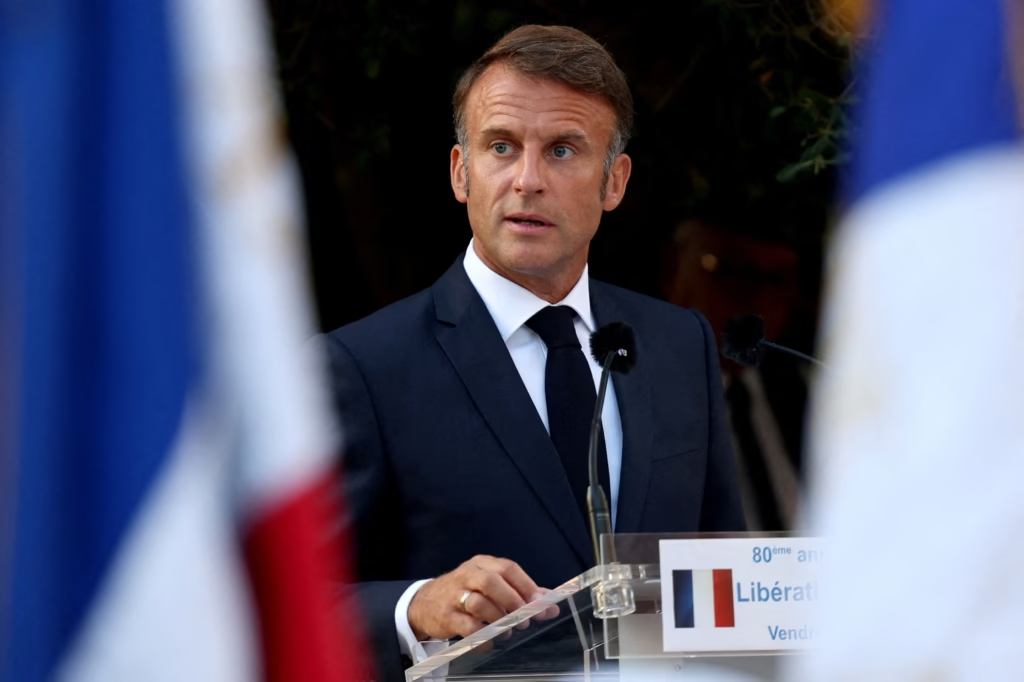
The French Government Crisis: Navigating Political Turmoil Amid Budget and Immigration Challenges
The French government has been facing unprecedented political instability, with key legislation on the table and intense internal and external pressures threatening to topple the administration. As President Emmanuel Macron’s second term progresses, the French political landscape is growing increasingly fragmented. Central to this turmoil are two contentious issues: the 2024 national budget and a drastic immigration reform bill. These developments have sparked a crisis within Macron’s coalition, raising the specter of government collapse, and throwing France into a period of political uncertainty.
The 2024 Budget Crisis: Divisions and Concessions

At the heart of the current crisis is the 2024 budget, which seeks to address France’s growing deficit through a combination of spending cuts and tax hikes. The proposed budget includes difficult fiscal measures, designed to reduce France’s public debt, but these have been met with fierce opposition from several factions in Parliament.
One of the most notable sources of opposition is the National Rally (RN), a far-right party led by Marine Le Pen. Le Pen’s party has used its considerable leverage to demand changes to the budget in exchange for support. While traditionally a critic of the Macron administration, the RN has seen its influence grow, and its support is now a key factor in whether the budget passes. To secure this backing, the French government has been forced to make concessions, including scaling back certain social welfare programs and altering tax policies to align more with the far-right’s demands Wikipedia.
In the political deal-making process, Prime Minister Élisabeth Borne has been at the forefront of negotiations with Le Pen’s party, despite internal disagreements within Macron’s centrist coalition. Some members of Macron’s party, especially those from liberal wings, are deeply uncomfortable with these concessions to the far-right. As a result, many centrist lawmakers have publicly criticized the compromises made in the budget negotiations, fearing that they will alienate their base and cause further political fallout Wikipedia.
Immigration Reform: A Flashpoint for Division
Simultaneously, the immigration reform bill has become another flashpoint for the French government. This bill proposes a series of restrictive measures aimed at curbing immigration and asylum applications in France, which has been a point of contention for years. Among the most controversial provisions are changes to the State Medical Assistance (AME) system, which currently allows undocumented migrants to access free healthcare under certain conditions.
The bill also includes reforms to the family reunification process for migrants, limiting the number of relatives who can join asylum seekers in France. The National Rally, along with other conservative factions, has strongly supported the bill’s provisions, claiming it is necessary to curb the number of immigrants entering France and ease the strain on public resources. However, the bill has faced strong opposition from the left, where critics argue that it violates human rights and undermines France’s commitment to international lawWikipedia.
Within Macron’s coalition, ministers have been divided over the bill, with some left-wing members threatening to resign if the bill is passed in its current form. Health Minister Aurélien Rousseau and Culture Minister Rima Abdul-Malak were particularly vocal in their opposition, citing concerns over the potential impact of the proposed changes to AME and other migrant health protections. While the bill passed in the National Assembly and Senate, the growing rebellion within the governing coalition made it clear that the political fallout was far from over Wikipedia.
Internal Divisions and Ministerial Resignations
As tensions over both the budget and immigration reform deepened, the French government found itself grappling with ministerial resignations and internal rebellions. The most significant of these resignations came from Health Minister Aurélien Rousseau, who quit in protest against the immigration bill. Rousseau, who had only been in office for six months, felt that the proposed reforms to AME were inconsistent with his values and the policies he had championed Wikipedia. Similarly, Sylvie Retailleau, the Higher Education Minister, also offered her resignation, though she ultimately chose to remain in government after reassurances from President Macron.
These resignations highlighted the growing fractures within the ruling La République En Marche (LREM) party. As the political divisions between the far-right and the left became more pronounced, many MPs began to question the viability of Macron’s presidency and whether a change of leadership was needed to restore order. Publicly, the MoDem party leader, François Bayrou, expressed the view that Macron needed to make a strategic shift in his government to ensure that France could move forward without further fragmentation Wikipedia.
A Potential Change in Leadership: Macron’s Options

The possibility of a leadership change loomed large as Prime Minister Élisabeth Borne faced increasing calls for her resignation. With many in the government questioning her ability to manage the ongoing crisis, President Macron was left to make a difficult decision. Borne’s leadership, while initially seen as an asset, had become a point of contention. Macron’s allies had begun to question her ability to steer the government through such turbulent times, especially with an upcoming vote on the immigration bill and mounting internal pressure.
By early January 2024, the political environment had become so unstable that it was clear a change of leadership was inevitable. Borne reluctantly agreed to step down, clearing the way for a new prime minister to try and restore stability to Macron’s presidency. On January 8, 2024, Borne was replaced by Gabriel Attal, the 34-year-old Education Minister, who represents a fresh face in French politics. Attal, considered a rising star in French politics, is expected to play a key role in bridging the gaps within the ruling coalition WikipediaPOLITICO.
The Road Ahead: Can Macron Recover?
The French government crisis is far from over. As Gabriel Attal takes over as prime minister, he will face the daunting task of healing the deep divisions within Macron’s coalition while also addressing the far-right’s demands and the ongoing challenges posed by the immigration bill and the 2024 budget. Whether Attal can unite the fractured coalition and push through key legislation will determine the future of Macron’s presidency and the broader direction of French politics.
In the coming months, France will face several critical votes, including on the budget and the immigration reform. The outcome of these votes will not only shape Macron’s second term but could also determine whether France will experience further political turmoil or a period of relative stability. The stakes are high for both Macron and the French people, who are watching closely as their government grapples with its future.
Do follow for more news: DailyForesight



